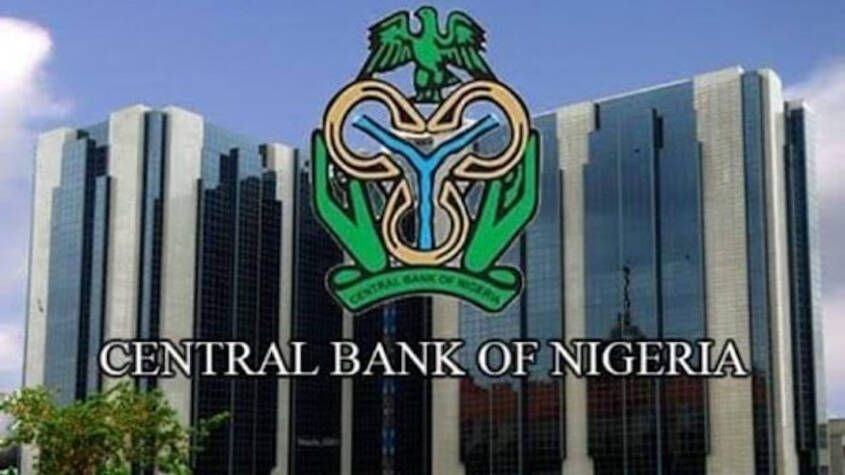By Douglas Maha, with agency report
The latest rating by Fitch Rating has revealed that just two of the 21 commercial banks have met the mandatory N500 billion capital base requirement of the Central Bank of Nigeria, CBN. The reputable American credit rating agency said some of the 19 other banks require significant capital injections to meet the new CBN threshold.
The new requirements were introduced by the CBN to strengthen the stability of the banking sector and ensure that banks can better withstand economic pressures such as currency volatility and inflation. Fitch said only Access Holding and Zenith banks are fully compliant.
While many banks are in the process of raising capital to meet this target, progress has been uneven. Some banks have already met or surpassed the new requirements, while others continue to face difficulties, the latest Fitch report stated.
Others on the path are FirstHoldCo, UBA, and Guaranty Trust Holding, which have adopted phased approach to meeting the required capital base. These banks have gone to the market to raise fund, with First Holdco and UBA rights issues awaiting regulatory approval to commence.
Compliance Status of Key Nigerian Banks
| Bank Name | Compliance Status | Compliance Percentage |
|---|---|---|
| Access Holdings | Fully compliant | 100% |
| Zenith Bank | Fully compliant | 100% |
| Ecobank Nigeria | Compliant (minor adjustment needed) | ~95% |
| Jaiz Bank | Compliant | ~98% |
| Fidelity Bank | Raising additional capital | ~70% |
| First City Monument Bank (FCMB) | Raising additional capital | ~65% |
| Union Bank of Nigeria (UBN) | Below required CAR | ~85% |
| Wema Bank | Shareholder approval to raise capital | ~80% |
| Coronation Merchant Bank | Board approval for capital raise | ~75% |
Banks Fully Compliant with the New Requirements
According to Fitch, Access Holdings and Zenith Bank have fully complied with the CBN’s directive, meeting or exceeding the new minimum capital base of 500 billion naira. Both banks are among Nigeria’s largest financial institutions, with more extensive balance sheets and stronger capital-raising capabilities. Their success in raising sufficient capital reflects their robust position in the market.
Banks Still in Progress
Ecobank Nigeria and Jaiz Bank are on track to meet the required capital thresholds but still require minor adjustments to fully comply. The report said Ecobank, for example, is slightly below its total capital adequacy ratio (CAR) requirement of 10%. However, the bank plans to raise additional capital to restore full compliance, putting it on course to meet the March 31, 2026 deadline.
Fidelity Bank and First City Monument Bank (FCMB), meanwhile, face more significant hurdles in securing the capital necessary to maintain their international banking licenses. Both have raised initial capital but still need additional funds to meet the full requirement. As second-tier banks, they face a higher challenge in raising capital relative to their balance sheets compared to larger institutions. While both banks have received shareholder approval for further capital raises, they could consider downgrading to a national license, given that each only has one foreign subsidiary.
Smaller Banks Struggling to Meet Requirements
Smaller and third-tier banks, such as Union Bank of Nigeria (UBN), Wema Bank, and Coronation Merchant Bank, have been slower to address the capital requirements. UBN, for example, remains below the required CAR and has yet to raise enough capital to comply with the new standards. Fitch also notes that while Wema Bank has secured shareholder approval to raise sufficient capital to retain its national license, the bank is still in the process of launching the capital-raising initiative, with plans to begin in April.
Coronation Merchant Bank has received board approval for a capital raise, though it remains unclear whether UBN and other smaller banks have obtained the necessary shareholder approvals. Fitch suggests that mergers, acquisitions, or license downgrades are more likely among these smaller banks if they fail to meet the capital requirements on time.
Progress and Impact on the Banking Sector
Despite these challenges, Fitch praised the significant progress Nigerian banks have made in raising capital to meet the new requirements. Most banks are on track to comply with the new standards, which is helping restore capitalization levels that were negatively impacted by the naira’s devaluation. This progress is also supporting business growth by providing financial institutions with the necessary capital buffers to withstand economic pressures.
Fitch further emphasized that strong investor demand has contributed to the success of most capital-raising efforts. As a result, the majority of first- and second-tier banks are expected to meet the new capital requirements through these efforts alone, decreasing the likelihood of major consolidation in the banking sector. The agency also noted that nearly all the banks raising capital have either completed their capital-raising processes or have formally launched them.
Future Outlook and Economic Implications
The capital-raising efforts are helping Nigerian banks recover from the challenges caused by the devaluation of the naira, which had put a strain on their capital adequacy ratios and increased risks associated with dollar-denominated loans. Strengthened capital buffers will mitigate risks from a challenging operating environment, including regulatory changes and currency volatility, while also creating room for business expansion.
As banks continue to raise capital and make progress toward compliance, the likelihood of significant consolidation within the banking sector has decreased. Instead, the new capital requirements are expected to lead to a more resilient and competitive banking landscape, better equipped to handle future economic challenges.
Conclusion
The CBN’s decision to raise capital requirements is part of a broader strategy to stabilize the financial system and fortify Nigeria’s banking sector. While some banks have already complied with the new standards, others face challenges in securing the necessary funding. The ongoing capital-raising efforts are helping restore confidence in the banking sector, mitigate risks from currency volatility, and foster business growth.
The deadline of March 31, 2026, remains critical for banks still working to meet the requirements.


































